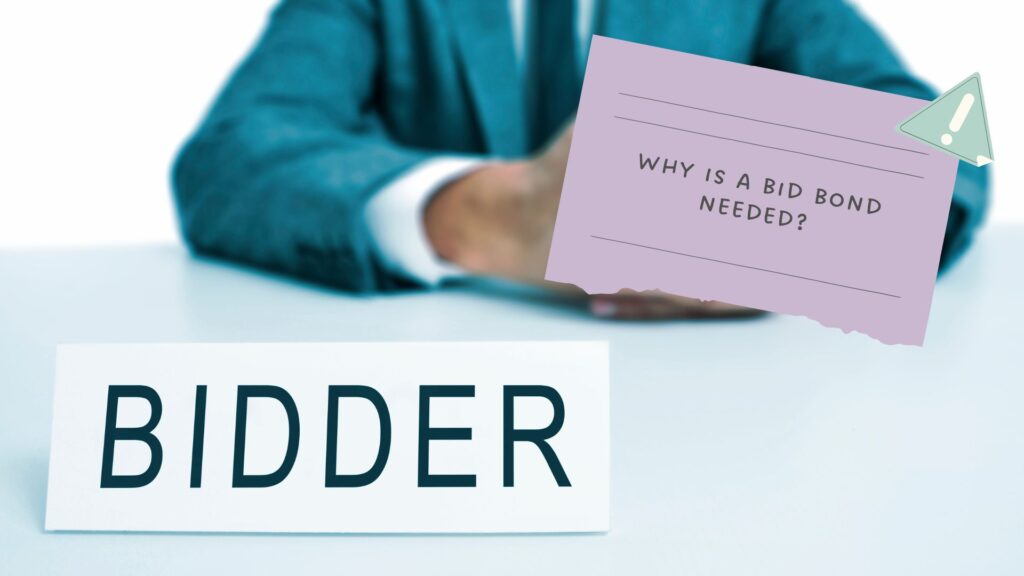When you are awarded a government contract, there is often a requirement that you post a payment bond. This bond guarantees that the contractor will pay their subcontractors and suppliers for the work they do on the project. But who is the surety on this bond? In other words, who is responsible for paying if the contractor fails to make good on their payments?

What is a payment bond?
A payment bond is a type of surety bond that guarantees that contractors and subcontractors will receive payment for their labor and materials used on a construction project. The payment bond serves as an assurance to the obligee, typically the owner or developer of the project, that all payments related to the completion of the contract will be made. Payment bonds also serve to protect subcontractors and suppliers from nonpayment by the contractor. If one of these parties is not paid, they can file a claim against the bond to receive payment.
Why do you need a payment bond?
A payment bond is a type of surety bond that ensures contractors and subcontractors are paid for the work they do. It protects both property owners and general contractors during construction projects. The payment bond guarantees that all parties involved in the project will be compensated for their work, materials, and labor costs.
What other bonds are needed along with a payment bond?
A performance bond is required in addition to a payment bond when signing a construction contract. A performance bond guarantees that the contractor will complete the project according to the terms of the contract and that any subcontractors will be paid in full.
Who is the surety on a payment bond?
A surety on a payment bond is an individual or business entity, usually an insurance company, that agrees to pay up to the full amount of the payment bond if the contractor fails to pay its subcontractors and suppliers. The surety is responsible for ensuring that all payments due under a contract are paid in full and on time. The surety must also make sure that the contractor complies with all contract terms.
Requesting a copy of the payment bond
When requesting a copy of the payment bond, it is important to provide as much detailed information as possible. This includes the contractor’s name, address, job site location, and project details. The surety providing the bond may also need additional documentation such as a financial statement or proof of insurance.
It is important to have a clear understanding of all the conditions specified in the payment bond. This includes the amount of money covered by the bond and any restrictions on who can receive payments from the bond. It is also important to note the time frame for filing claims against the bond in case of non-payment.
Having a copy of the payment bond provides an extra layer of protection for everyone involved in a construction project.
Can you get a payment bond with bad credit?
The short answer is yes, you can get a payment bond even with bad credit. However, it is important to note that your credit score and other financial information will be taken into consideration when determining eligibility for the bond. If your credit score is below 600, it may be difficult to obtain a payment bond from a surety company or bank.
Tell me the best way to secure a payment bond?
The best way to secure a payment bond is to work with a surety company that has experience working in the construction industry. Make sure that you do your due diligence and shop around for the best rates and terms. Additionally, make sure you have all of the required documents ready, such as financial statements, contractor licenses, resumes, and other relevant information as requested by the surety company.
How are claims handled for payment bonds?
Payment bonds are generally handled in the same way as performance bonds. The claimant must provide evidence that they were not paid for labor or materials used in completing a construction project, and they must also present evidence of any notices sent to the bond principal that payment is owed. Typically, the surety will require proof of all amounts due and owing, including copies of lien waivers and promissory notes. The surety company may also require a sworn statement from the contractor to ensure that all other claims have been satisfied before the bond claim can be processed.
How much do payment bonds cost?
The cost of a payment bond is typically between 3-4% of the total contract value. This percentage can vary depending on the size and risk associated with the project, as well as other factors such as credit history and financial strength. The more reliable the bond issuer’s track record, the lower their rate will likely be. Additionally, some contractors may be able to negotiate a lower rate for larger contracts.
